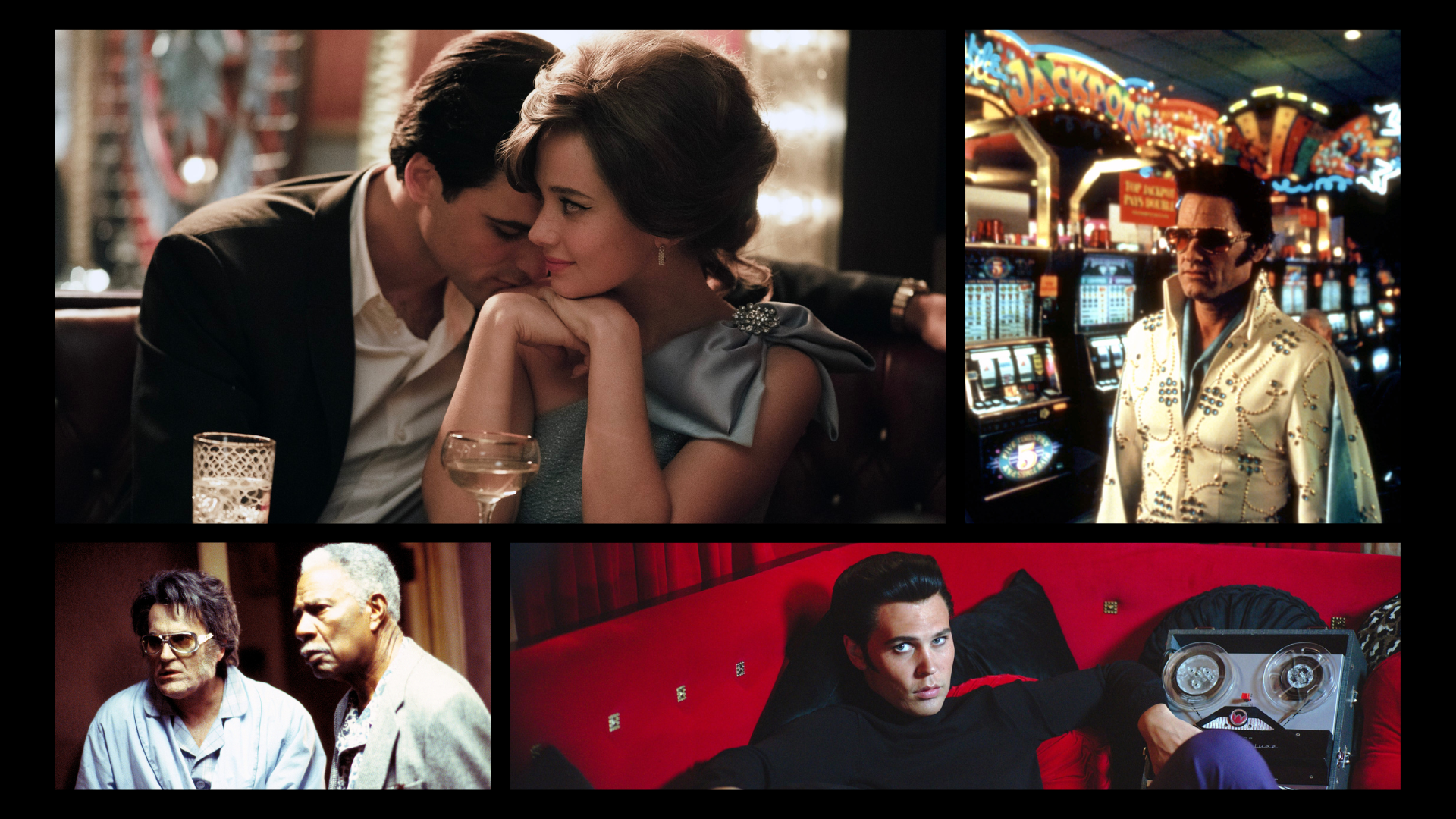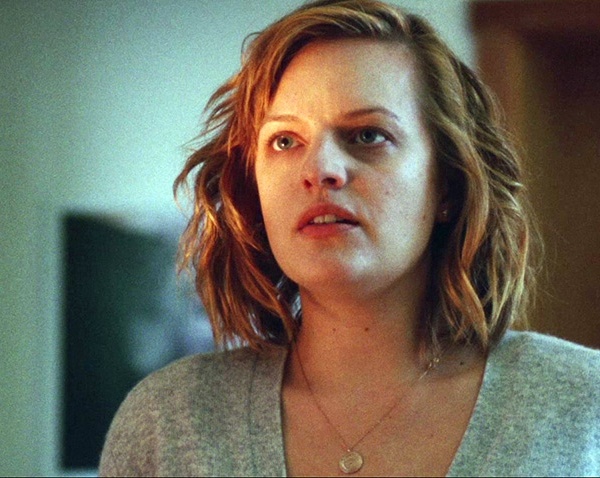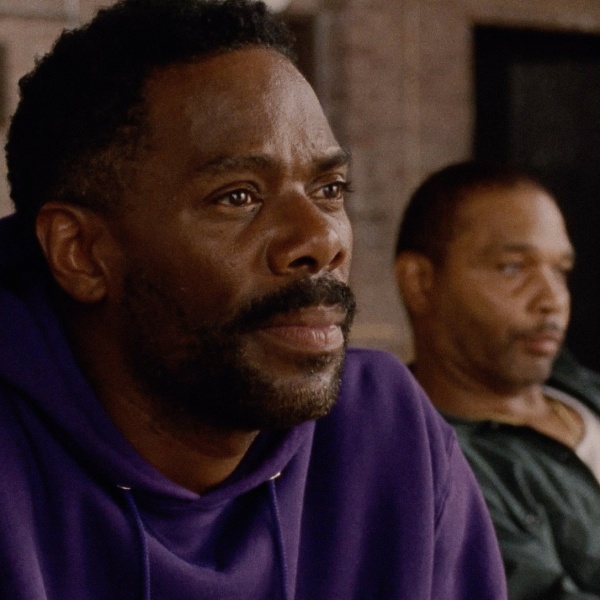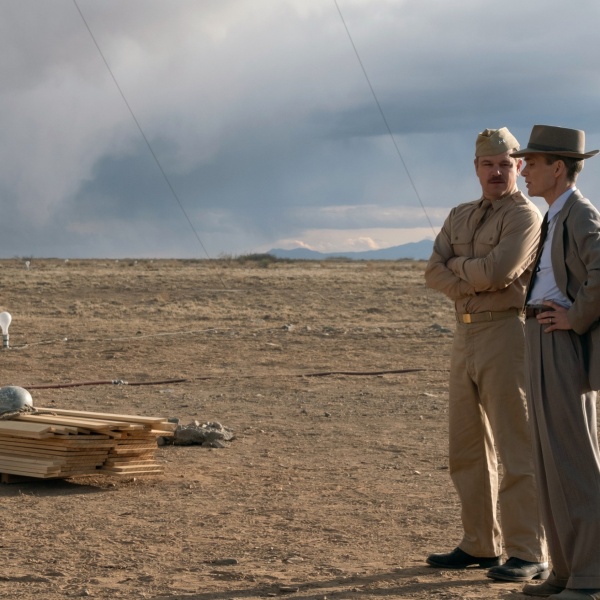There are celebrities who transcend mere levels of fame to become an icon. Marilyn Monroe, Michael Jackson, and Muhammad Ali all come to mind as pop culture figures that achieved a level of ubiquity that firmly embedded them in the fabric of 20th century pop culture, impacting the cultural imagination in a way that can still be felt today. And among those icons, there’s another 20th century figure that feels more legend than man at this point in time: Elvis, baby.
Born in 1937 to Vernon and Gladys Presley in Tupelo, Mississippi, Elvis Presley moved to Memphis, Tennessee as a teen, where he developed an interest in music and signed his first record deal at 19. Breaking through in 1956, Presley helped to popularize the Rock and Roll genre, taking inspiration from Black artists of the time and developing a controversial reputation for his energetic performances and often sexually-charged dance moves. Over the course of his long career, he sold over 500 million records, won three Grammys, helped popularize Las Vegas residencies for musical artists, starred in a string of successful movies, and nabbed the records for the most albums charted on the Billboard Hot 100 and the most RIAA-certified gold and platinum albums.
But even if you don’t know all of that, you know Elvis. You know the gravelly voice. You know the shaking hips. You know the slicked-back hair and the glittery white Vegas jumpsuit, or the “Jailhouse Rock” black and white suit, or the leather black one from his 1968 special. You know “Uh huh huuuuh” or “Thank you. Thank you very much.” The man Elvis Presley is a controversial figure — for his alleged plagiarism of Black artists, as well as his relationship with his ex-wife Priscilla when she was 14 and he was 24 — but the cultural figure Elvis is an unstoppable behemoth, with his iconography some of the most parodied and emulated symbols in the popular imagination.
Like Monroe, Elvis has long been a figure portrayed on film, even outside the 33 theatrical films he made over the course of his life. A lot of these portrayals were just quick references and cameos in films like “Forrest Gump” or “True Romance,” but the last two years have seen a full-on Elvis revival with two feature films about Presley’s life. The first, Baz Luhrmann’s divisive “Elvis,” is a delirious and hyperactive blockbuster biopic featuring an adoring and titanic performance from an undeniable Austin Butler, who went full method for the role. This year’s entry into the Elvis canon is a lot more revisionist: “Priscilla,” a Sofia Coppola film that focuses on the courtship between the musician (played by a suitably pathetic Jacob Elordi) and his young wife (Cailee Spaeny) from her point of view, painting a decidedly unglamorous picture of the 20th century’s most famous musical artist.
With “Priscilla” opening nationwide, IndieWire looked back to find the best cinematic references and portrayals of Elvis. The selections range from straightforward portrayals of the man on film, such as Butler and Elordi in their respective biopics, as well as parodies of the man like in “Walk Hard.” We also threw in some iconic Elvis needle drops and covers from songs, as well as a certain blue aliens immaculate Elvis impression. Read on for the best cinematic portrayals of Elvis. Let’s have a little less conversation and a little more reading, please.
-
Kurt Russell in John Carpenter’s “Elvis,” “3000 Miles to Graceland,” and “Forrest Gump” (1979, 1994, 2001)

Image Credit: ©Dick Clark Productions/Courtesy Everett Collection No actor has contributed quite as much to the “Elvis” onscreen canon as Kurt Russell has over the course of his career (aside from Presley himself, obviously). The ’80s icon has played or given homage to the King himself three times. In 1979, he earned an Emmy nomination for starring as Presley in TV biopic Elvis, which is best remembered now as his first collaboration with director John Carpenter. In 2001, he played a robber and Elvis impersonator in the thriller “3000 Miles to Graceland.”
In between, he had an uncredited role as the king. In 1994’s “Forrest Gump,” Russell provided the voice for Presley during a scene where the King (played by Peter Dobson) stays at the title character’s house and takes inspiration of his jerky movements in his leg braces for his dance moves. Russell went uncredited for decades, but confirmed his involvement in a 2016 interview with GQ.
-
“The Blues Brothers” (1980)

Image Credit: ©Universal/Courtesy Everett Collection John Landis’ beloved “SNL” spinoff film ends with a big tribute to Presley. After several misadventures, brothers and blues musicians Jake (John Belushi) and Elwood (Dan Aykroyd) end up back where they started: in prison. But they don’t let that get them down, performing a spirited rendition of Presley’s famous “Jailhouse Rock” that gets the entire crowd up on their feet.
-
“The Outsiders” (1983)

Image Credit: Courtesy Everett Collection Francis Ford Coppola’s “The Outsiders” is set in the ’60s and follows a group of young teen greasers — exactly the type of men inspired by and emulating Presley. So the film features a mountain of Elvis needle drops with “Blue Moon,” “Tomorrow Is a Long Time,” “Mystery Train,” “We’re Gonna Move,” “Milky White Way,” and “When It Rains It Really Pours” soundtracking the adventures of Ponyboy and friends.
-
“True Romance” (1993)

Image Credit: ©Warner Bros/Courtesy Everett Collection “True Romance” does not technically have Elvis Presley the man in it, but it does have Val Kilmer playing the idea of Elvis. In the film, Christian Slater’s lead character Clarence is an obsessive Elvis head, who frequently daydreams and imagines Presley speaking to him. It’s this imaginary Presley that convinces him to murder the pimp of Alabama (Patricia Arquette), kicking the plot in motion. The film generally hides Kilmer’s face during the sequences where he appears, but the actor is still excellent in the role, leaning into the mythical, Jimminy Cricket role that the film slots him into.
-
“Lilo and Stitch” (2002)

Image Credit: Screenshot According to Jacob Elordi, he knew everything he knew about Elvis before starring in “Priscilla” from the Disney classic “Lilo and Stitch.” And it’s likely the same is true for many a Gen-Z and younger Millenial who grew up with the film. The movie about a little girl and her blue alien best friend features a centerpiece sequence where Lilo attempts to get Stitch to behave by making him over like Elvis, because the star is a “model citizen.” Set to the pitch perfect selection of “Devil in Disguise,” it climaxes with Stitch dressed in the iconic white Vegas jumpsuit, performing a disastrous beach side Elvis act. It’s a funny, sweet, and perfect introduction to the Elvis iconography for children.
-
“Bubba Ho-Tep” (2003)

Image Credit: Courtesy Everett Collection After Presley’s death, a series of conspiracy theories spread that the star was actually alive and had faked his death with “sightings” of Elvis making it onto tabloids for decades. “Bubba Ho-Tep” takes that idea and imagines it’s real, focusing on a man in a retirement community who claims to be the real Elvis. In this version of the story, Elvis traded places with an impersonator and was unable to return to his old life when the impersonator unexpectedly died. It’s a wild premise, and that’s before you get into how he ends up fighting the titular mummy terrorizing the retirement home. Add in Bruce Campbell playing Elvis caked in old-age make-up and you might expect a campy B-movie — nd “Bubba Ho-Tep” isn’t not that. But what resonates and surprises is Campbell’s performance, which is surprisingly moving in its exploration of growing older and feeling the world passing you by.
-
“Walk Hard: The Dewey Cox Story” (2007)

Image Credit: ©Columbia Pictures/Courtesy Everett Collection Some might call Jack White the 21st-century Elvis (note: absolutely nobody calls him that). Regardless, The White Stripes singer was an inspired choice to play Presley in “Walk Hard,” the greatest biopic about a fake person ever made. John C. Reilly stars as Dewey Cox, a titan of the music industry in a movie that parodies biopics of the time like “Walk the Line” as it runs through his rise to greatness, and sees him cross paths with equally successful (and actually real) musicians along the way. Elvis has a small but important part in the film as one of the stars Cox plays after during his first concert, and White plays him as a conceited maniac who constantly brags about being the king. Is it a very thin parody of the man? Yes. Does White look a thing like Elvis? No. Is it still extremely funny? You bet.
-
“Blade Runner 2049” (2017)

“Blade Runner 2049” is an odd film to find Elvis, mainly because it takes place in the distant future over a century after the King’s death. But the Elvis seen in the movie isn’t the real Presley: it’s a holographic AI (played by Ben Thompson) who performs in the abandoned Las Vegas casino where original film lead Deckard (Harrison Ford) is residing. During the film, the hologram, decked out in the white Vegas jumpsuit, performs “Suspicious Minds” and “Can’t Help Falling in Love.”
-
“Elvis” (2022)

Image Credit: ©Warner Bros/Courtesy Everett Collection We won’t get into whether or not Baz Lurhmann’s biopic about the king of rock and roll is actually good. One of the most notorious love-it-or-hate-it films in recent memory, “Elvis” sharply divided critics and audiences over its titanic runtime, straightforward biopic tropes, and wild tone shifts. About the only two thing people can generally agree upon is that Tom Hanks is terrible as the Colonel, and that Austin Butler is a perfect Elvis. A film this big needs a star willing to go big, and Butler delievers with an all charisma performance that matches Luhrmann’s maximalism and translates the sex appeal that made Presley famous to the modern day. It’s as pure a star is born performance as any in recent memory.
-
“Priscilla” (2023)

Image Credit: Courtesy Everett Collection “Priscilla” is very much its own movie, but it’s hard not to see it as a refutation and rejection of so many of the films on this list, particularly the Baz Lurhmann film it followed just a year behind. Sofia Coppola’s film focuses on Priscilla (Cailee Spaeny, excellent) and Elvis’ (Jacob Elordi) union from the former’s point of view, and portrays the King of Rock n’ Roll in a decidedly unglamourous light, keeping the power and age gap in the relationship uncomfortably apparent. It’s a queasy difficult watch, but a fascinating one, and although it’s firmly Priscilla’s movie, Elordi is excellent in a very different take on Presley, deemphasizing the glamor and playing him as alternatively a skeezy and pathetic child. Every other film on this list is, to some degree, about Elvis the myth; “Priscilla” introduces us to her take on Elvis the man.





